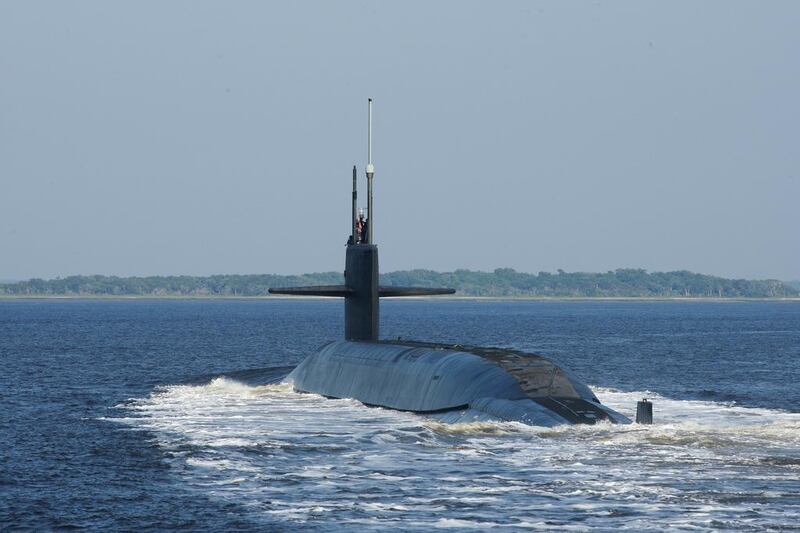Donald Trump is reported to be planning to adopt a far more hawkish position on nuclear weapons in a move that is being seen as making a potential conflict using such ordinance more likely.
In a nuclear posture review (NPR) document set to be published by the Pentagon after the president's state of the union speech at the end of January, it is expected the administration will widen the scenarios in which such weapons could be used and will propose developing lower yield missiles for reactive use against non-nuclear attacks.
According to The Guardian newspaper, Jon Wolfsthal, special assistant to Barack Obama on arms control and non-proliferation, has seen a draft of the NPR and is concerned that the development of new weapons will mean armed forces commanders might see them as more usable. One new weapon is a submarine-launched Trident missile with a smaller warhead than usual
Since taking office, Mr Trump has been vocal in his support for nuclear weapons, having talked about increasing the US's stockpile and also having threatened North Korea with “fire and fury like the world has never seen”. Mr Trump has also suggested he would build weapons that would breach the 1987 Intermediate-Range Nuclear Forces Treaty with Russia.
Mr Wolfsthal told the newspaper that he had seen a copy of the final draft of the NPR which proposed the creation of the new weapon as well as revising the terms of use for weapons which would include attacks against national infrastructure or nuclear sites. He also said that earlier drafts of the document had been even more extreme, with plans for the development of hyper-glide missiles that could travel at speeds of up to 25,000kph being dropped.
"My read is this is a walk-back from how extreme it was early on. It doesn't have as much terrible stuff in it as it did originally," Mr Wolfsthal told The Guardian. "But it's still bad.
“What I’ve been told by the people who wrote the thing was what they were trying to do was to send a clear deterrent message to Russians, the North Korean and the Chinese. And there is pretty good, moderate but strong language that makes clear that any attempt by Russia or North Korea to use nuclear weapons would result in a massive consequence for them and I think that’s actually moderate, centrist and probably very much needed.”
“Where they go overboard, is where they say that in order to make that credible the US needs to develop two new types of nuclear weapons,” he added.
In September 2017, Rob Soofer, deputy assistant defense secretary for nuclear and missile defense policy, said the NPR would look at how nuclear weapons could “deter new non-nuclear attacks that could have strategic effects: catastrophic mass casualties, cyber attacks against US infrastructure, chemical or biological attacks, or attacks against US critical space capabilities.”
Mr Soofer said that the strategy “will require a broad range of forces of various ranges, various yields…which can defeat Russia’s and China’s nuclear strategy.”
Writing for the Arms Control Today website, Daryl Kimball, head of the Arms Control Association, said the administration was lapsing into "dangerous, Cold War thinking. The United States already possesses a diverse array of nuclear capabilities, and there is no evidence that more usable weapons will strengthen deterrence of adversaries or compel them to make different choices about their arsenals.
"Moreover," Mr Kimball wrote, "once nuclear weapons are used in a conflict against another nuclear-armed adversary, even in small numbers or in a regional conflict, there is no guarantee against a cycle of escalation leading to all-out global nuclear war."
Hans Kristensen, director of the nuclear information project at the Federation of American Scientists, agreed that there was no coherent argument for developing new weapons..
"It assumes that the intelligence community has determined that one or several adversaries out there are gambling that the US would be self-deterred from using a ballistic missile warhead because they have larger yield. Thats just not the case. We have never, ever heard anyone say that is so," Mr Kristensen told The Guardian.






